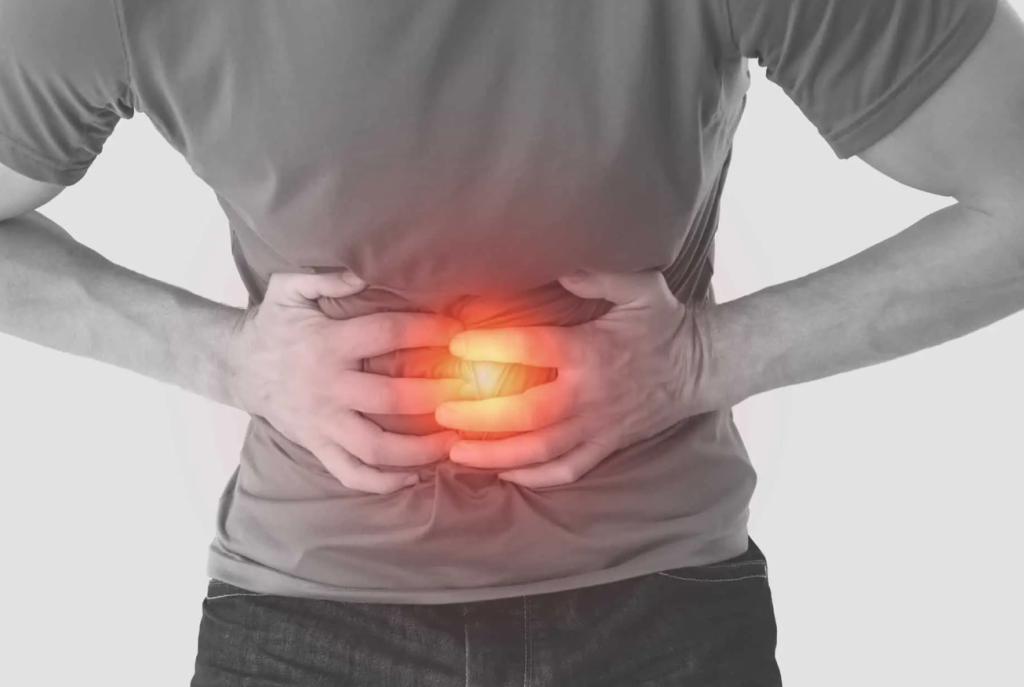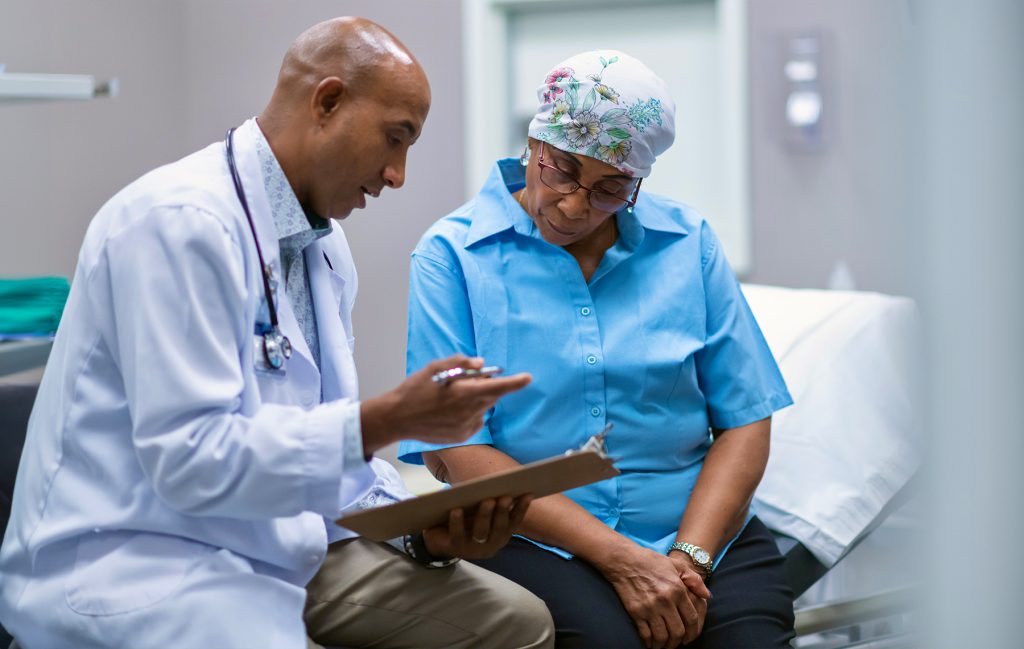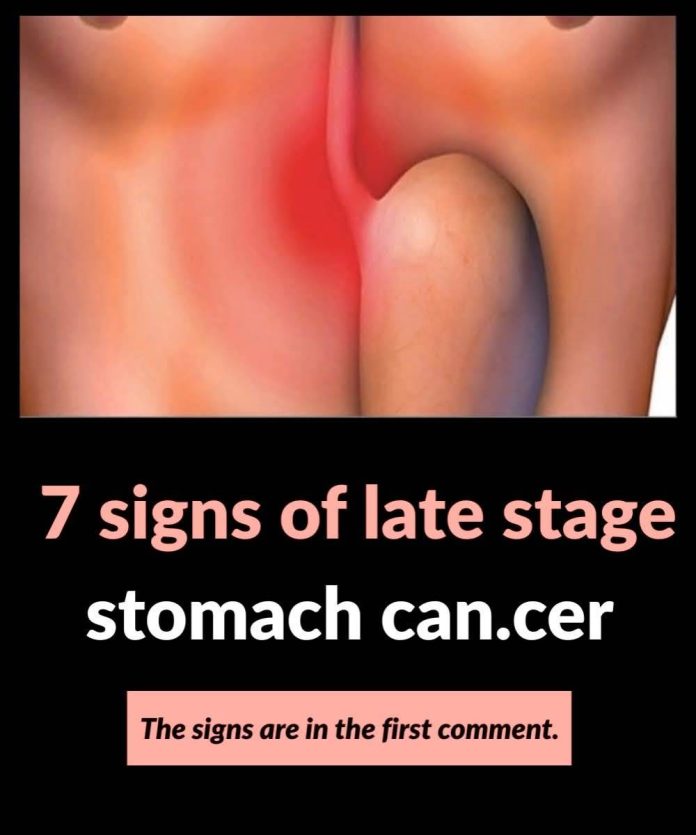Stomach cancer, also called gastric cancer, can grow silently and show few warning signs in its early stages. Sadly, by the time symptoms become severe and unmistakable, the disease may have already progressed to an advanced or late stage. Being aware of these critical indicators can help you seek prompt medical attention, improve your treatment options, and possibly enhance your prognosis. Here are seven key signs that stomach cancer may be in an advanced stage:
1. Persistent Upper Abdominal Pain or Discomfort
One of the most common late-stage symptoms is long-lasting pain or discomfort in the upper belly area. This may feel like constant aching, gnawing, bloating, or sharp pain under or around the ribs. Unlike more familiar indigestion or gas pains, this type of abdominal discomfort often doesn’t resolve with over-the-counter remedies and may worsen after eating or taking certain medications.

2. Difficulty Swallowing (Dysphagia)
When stomach cancer spreads toward the junction where the esophagus meets the stomach, it can narrow the passageway and cause trouble swallowing. This symptom may begin as a sensation of food sticking or slowing down, but can quickly escalate to pain or discomfort during swallowing. As tumors grow, even soft foods and liquids may cause difficulty or discomfort, adding to the urgency of diagnosis.
3. Unintentional Weight Loss and Muscle Loss
Weight loss is one of the most alarming signs of late-stage stomach cancer. Patients may lose five percent or more of their body weight over a short period of just a few months. This is not about dieting or eating less—it often results from pain, appetite loss, or the body’s metabolic response to cancer. Along with weight loss, muscle mass and strength can decline noticeably, leading to fatigue and weakness.
4. Severe Nausea and Frequent Vomiting
Advanced stomach tumors can interfere with digestion and normal stomach function. This may result in regular bouts of nausea that persist throughout the day, even when avoiding food. Vomiting becomes more common, sometimes including partially digested meals or even blood. Frequent vomiting—especially if it contains blood or resembles coffee grounds—signals obstruction or bleeding and requires immediate medical attention.
5. Advanced Bloating, Fullness, and Poor Appetite
In late-stage disease, eating can become not just uncomfortable, but nearly impossible. Even small portions of food can trigger a feeling of early fullness or bloating. These symptoms stem from the stomach’s reduced capacity and sluggish emptying. Over time, this leads to inadequate food intake and nutritional deficiencies, making everyday life even more difficult.
6. Gastrointestinal Bleeding and Anemia
Stomach tumors can erode the stomach lining, causing bleeding that may be hidden or visible. Dark, tarry stools, known as melena, or black vomit with a coffee-ground appearance are common hints of gastrointestinal bleeding. As blood loss continues gradually, iron deficiency anemia develops, leading to pale skin, brittle nails, shortness of breath, rapid heartbeat, and severe fatigue.
7. Fluid Accumulation and Swelling (Ascites)
As stomach cancer progresses, it may spread to the peritoneum (abdominal lining) or lymph nodes. This can trigger the buildup of excess fluid within the abdomen—a condition called ascites. The belly becomes noticeably swollen and tight, causing pain or discomfort and impairing digestion and breathing. Managing ascites often requires medical drainage and supportive care.
Early-stage stomach cancer may be nearly symptomless or cause only mild digestive discomfort. However, by late-stage, the tumor has grown large enough to interfere with normal digestive function, invade surrounding tissue, or affect nutrient absorption. It may also spread to lymph nodes, liver, or peritoneum. These changes trigger more pronounced symptoms that reflect both local stomach trouble and systemic health decline.
If you or someone you know experiences any of these symptoms—especially several at once—don’t wait:
- Intense upper belly pain
- Difficulty swallowing
- Rapid, unexplained weight loss
- Frequent vomiting or nausea
- Early fullness or poor appetite
- Black stools or vomiting blood
- Swelling of the abdomen
Prompt medical evaluation is crucial. Early interventions can relieve symptoms, improve quality of life, and allow for therapies that could shrink tumors, reduce bleeding, or ease pain.
Once late-stage stomach cancer is suspected, doctors will likely perform:
- Endoscopy with biopsy: A flexible camera is used to view suspicious areas and extract tissue samples.
- Imaging tests: CT scans, MRIs, or PET scans help assess tumor size, location, and possible spread.
- Blood tests: These check for anemia, liver function, infection, and general nutritional status.
Treatment may include:
- Palliative measures: To manage pain, control bleeding, reduce fluid buildup, and improve comfort.
- Chemotherapy or targeted therapy: These aim to slow cancer growth, reduce symptoms, and prolong survival.
- Radiation therapy: May be used to relieve pain, control bleeding, or address localized tumor growth.
- Surgical interventions: Rare in late-stage cases, but may be considered to bypass obstructions or remove symptomatic tumor areas.
- Nutritional and supportive care: Critical for maintaining strength and quality of life.
Living with late-stage stomach cancer is challenging physically, emotionally, and socially.

Here are ways to cope:
- Build a support system: Engage with family, friends, or support groups for cancer patients.
- Coordinate care: Work closely with oncologists, nutritionists, palliative care teams, and mental health professionals.
- Focus on nutrition: Even small, nutrient-rich meals or supplements can help maintain energy and weight.
- Manage symptoms proactively: Pain, nausea, low appetite, and fatigue often respond well to combined medical and lifestyle strategies.
- Address emotional health: Counseling, mindfulness techniques, and conversations with loved ones can provide relief and mental resilience.
Late-stage stomach cancer is marked by persistent pain, trouble swallowing, severe weight loss, nausea, bleeding, and fluid buildup. These alarming signs should trigger immediate medical consultation. While treatment options at this stage focus more on relief and symptom control, advances in chemotherapy, targeted therapies, and supportive care offer hope. Being informed, proactive, and supported is key to navigating the journey ahead with dignity and improved quality of life.












